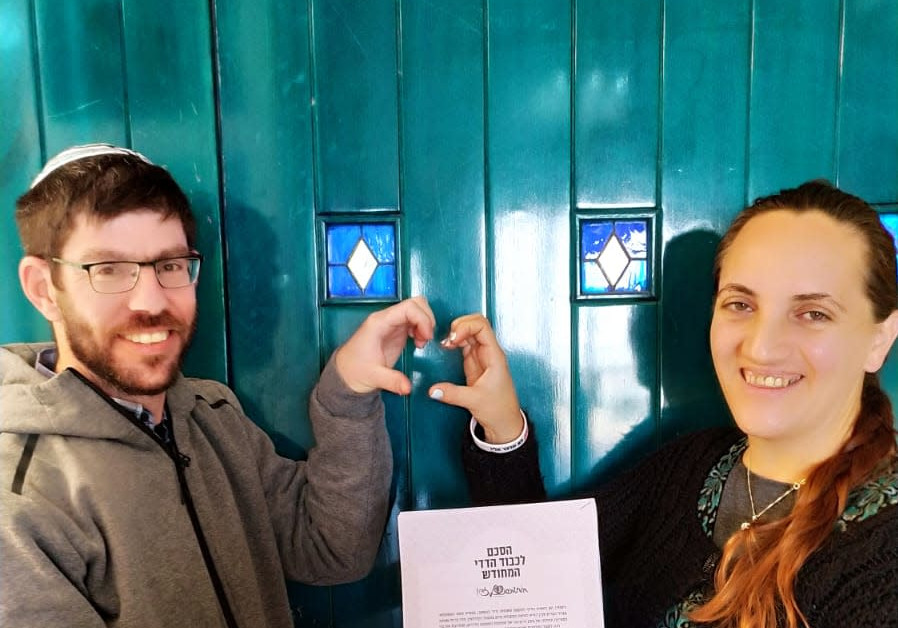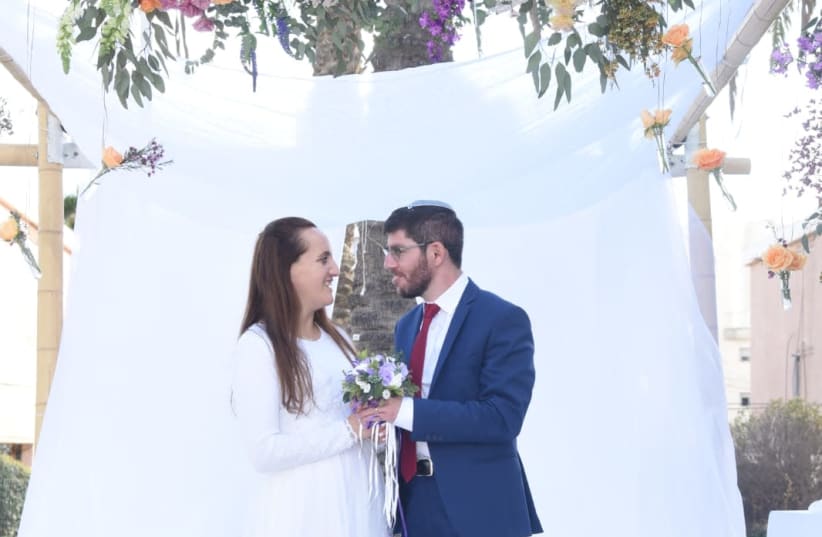Leah and Uriel are both divorcees who "describe themselves as victims of “complicated relationships,” that complication being refused a get, or a Jewish legal divorce document, from their spouse for five years and three years, respectively. They finally got married last week.
"This was truly a case of instant love, because someone who has emerged from the trauma of get refusal and remains with a positive outlook on life is certainly a person of strength and someone that both of us realized that we would want to spend the rest of our lives with,” Leah said.
The couple, individually, needed to overcome legal battles to regain their freedom from their trapped marriages.
In Jewish law, to be halachically divorced, the husband needs to grant the wife a divorce document in order for her to marry someone else, but it has to be out of his own accord. The problem is when men are abusive and power-hungry, and refuse to grant the divorce document - the get. The women then become known as agunot (chained) and Jewish law provides a number of ways with which to convince the husband to grant the get of his own will.
There are a few legal organizations that fight the battles that these women cannot. Two notable ones are Ohr Torah Stone’s Yad La’isha Monica Dennis Goldberg Legal Aid Center in Israel, and the Organization for the Resolution of Agunot (ORA), a nonprofit in the US.
Leah was legally represented by Yad La'isha, which, through their legal prowess, frees around 60 women from get-refusing husbands each year. The organization, with its branches all over the country, aids about 800 women annually.
Yad La'isha fought her legal battles for five years until she was able to marry again. "We accompanied Leah through very trying times until she was freed," said Pnina Omer, the director for Yad La'isha, "so there is a definite sense of 'closing a circle' as we help her [Leah] and Uriel through the phase of preparing for their new lives."
Uriel found Leah through a divorced parents group on Facebook. That instant connection led to a swift marriage plan, which raised concerns with their respective families, given their past. "But we all appreciated that this time was different," said Leah.
To avoid the situation of powerlessness that women can end up in, these legal organizations have pushed couples to sign the halachic prenuptial agreement before they get legally married.

"When a couple signs this agreement, it is a reflection of true love and responsibility for each other, something which needs to exist in every Jewish marriage," said Omer. "There is no doubt that when we see joy like that shared by Leah and Uriel we are motivated and encouraged to continue to fight on behalf of others who are going through the challenges of get-refusal. These cases prove there can be happy endings to even the toughest cases.
“There is no doubt that we both have concerns for what could be because of our mutual past, but we can’t allow our lives to be guided by that fear. With Leah, I feel like a new person and this is truly the first time in life that I want to unconditionally love someone else,” said Uriel.
